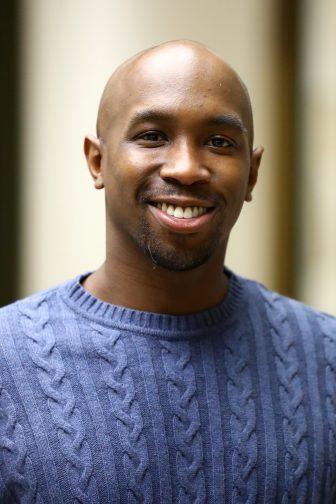When Gerald Porter, Jr., enrolled in a journalism fact-checking class, he was apprehensive about wading into politics. How could he distill accuracy among all the claims, attacks and spin? Would there even be verifiable truths to be found? And in this era of political polarization, would anyone actually care about facts?

Already a seasoned student reporter, Porter says the class — and its fact-checking news site, The Observatory — transformed him as a journalist.
“The class was everything to me,” he says. “I came out completely different and more confident.”
Michael Wagner, an associate professor and Louis A. Maier Faculty Development Fellow in the School of Journalism and Mass Communication, developed the class to have students fuel The Observatory, which he and assistant professor Lucas Graves launched with funding from an Ira and Ineva Reilly Baldwin Wisconsin Idea Grant and support from the nonpartisan Wisconsin Center for Investigative Journalism.
For the past two academic years, students have written stories fact-checking Wisconsin politicians and explaining issues. This past year, they verified statements by state lawmakers and candidates for governor, plus wrote long-form explanatory features on key issues such as Foxconn, guns, immigration and education. The site received more than 20,000 unique readers.
Porter covered gun laws and the quality of Wisconsin’s healthcare system, but the story that affected him the most was one in which he verified a comment by U.S. Rep. Gwen Moore of Milwaukee about Wisconsin’s rate of lead poisoning being worse than that of Flint, Michigan.
The class was everything to me. I came out completely different and more confident.
The story has been read more than 10,000 times, the project’s “most impactful fact-check ever,” says Wagner, adding that it was shared widely on social media.
“It was sad to work on, but it helped shed some light on something most people don’t know about,” Porter says. “These stories are power.”
Porter admits it took him awhile to adjust from moving beyond the standard two-source, point-counterpoint interview format to fact-checking mode. But once he discovered the wealth of information he could glean through interviews as well as digging into data and archived coverage, he never looked back.
“Once I got into the groove, it was like putting together the pieces of a puzzle,” he says. “I got obsessed with all this data diving. It really helps paint a more informative picture.”
Wagner believes it’s crucial for students to get comfortable with data and to learn to navigate their way to what’s verifiably true.
“They learn how to afford ample and fair opportunities for those we are fact-checking to produce evidence for their claims,” he says. “They learn to use multiple experts and sources to make tough decisions about the veracity of the claims our leaders make. They gain tremendous experience in the course.”
And while The Observatory has only been around for two years, Wagner hopes to make it a permanent course offering. Meanwhile, its alums are landing covetable internships and jobs around the country.
This summer, Porter is working as a reporting intern with the Wall Street Journal. While out on assignment, he hopes to also track down some of his own stories on the ground and back them up with the tools and knowledge he gained through The Observatory.
“I’m always looking for the best ways to tell the story,” he says. “I’m mastering the art of leaving no stone unturned.”
